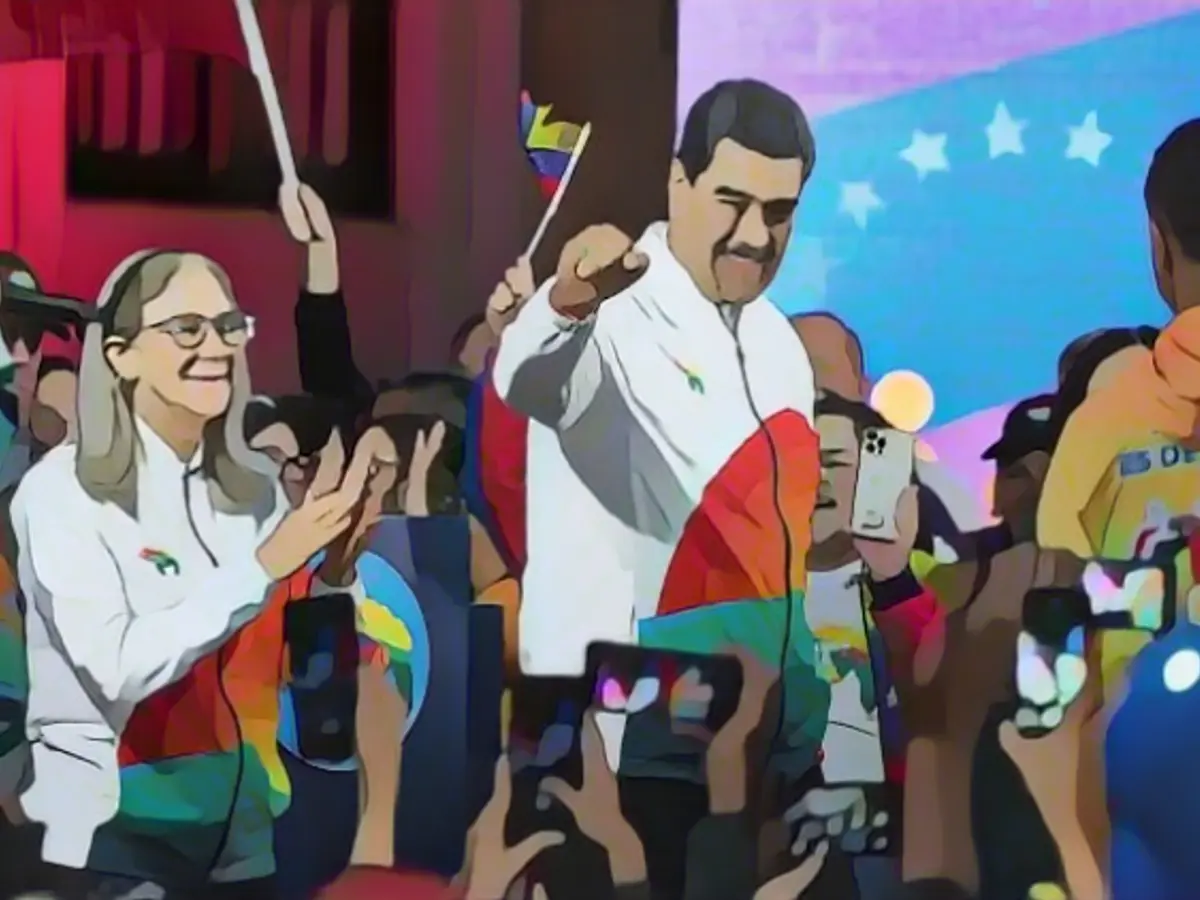Venezuela votes in favor of annexing parts of Guyana
Venezuela's president is rarely at a loss for pithy words and announcements. However, one of Maduro's current plans goes even further: he wants to annex large parts of the neighboring state of Guyana. A large majority of the population is also in favor of this. The motivation is hard-core economic.
According to the authoritarian government, the people of Venezuela have confirmed their country's claim to the resource-rich Essequibo region in the neighboring state of Guyana in a referendum. On Sunday, almost 96 percent of participants voted in favor of creating a new Venezuelan state called Guayana Esequiba and granting Venezuelan citizenship to the local population, according to the electoral authority CNE in the evening (local time).
It was "a clear and overwhelming victory for the 'yes' in this consultative referendum", said the president of the National Electoral Council, Elvis Amoroso, on Sunday. Around 10.5 million out of 20.7 million eligible voters took part in the non-binding referendum. The voter turnout was therefore around 51 percent. The electoral authorities kept the polling stations open for an extra two hours to allow people who had already turned up to vote.
President Nicolás Maduro celebrated the result as a victory for Venezuela in front of hundreds of supporters in the Plaza Bolívar in the capital Caracas. It was initially unclear how the government intended to proceed. On Friday, the United Nations International Court of Justice (ICJ) ordered Venezuela to "refrain from any action that would alter the current situation in the disputed territory".
Two thirds of the country would be affected
Guyana's government had described the referendum as a threat to its security and peace. It denounced the referendum as an "existential" threat. In Guyana, thousands of people took to the streets, some wearing T-shirts with the slogan "Essequibo belongs to Guyana". They formed human chains to show their solidarity with the government. President Irfaan Ali assured them that the country's borders were secure. The approximately 160,000 square kilometer Essequibo area makes up about two thirds of Guyana's territory.
According to official figures, all five questions in the referendum were answered with a majority of between 95.4 and 98.11 percent of votes in favor. This included the question of whether Venezuela should reject the jurisdiction of the ICJ in the matter.
Regardless of the outcome of the referendum, nothing will change directly in Essequibo. The referendum is not binding and the population in Essequibo does not vote. Maduro's government has also stated that it is not trying to use the vote to justify annexing or invading the territory.
The current borders of the territory were established in 1899 in an arbitration ruling by a tribunal in Paris, which was initiated by the USA and Great Britain. Venezuela refers to an agreement with the United Kingdom from 1966 - a few months before the then colony of British Guiana became independent. This provided for a negotiated solution to the dispute. The border conflict intensified when large oil reserves were discovered off the Atlantic coast of Essequibo in 2015. Guyana, one of the poorest countries in South America, granted production licenses to the US oil company ExxonMobil. In October 2023, another significant oil discovery was made in the region, increasing Guyana's reserves to at least ten billion barrels - more than those of oil-rich Kuwait or the United Arab Emirates.
Read also:
The annexation plan by Nicolás Maduro aims to incorporate the resource-rich Essequibo region from neighboring Guyana, which is believed to hold significant oil reserves. The referendum results showed overwhelming support for Maduro's plan, with nearly 96% of participants voting in favor. The oil reserves in the disputed area have increased significantly in recent years, with Guyana possessing over ten billion barrels after a significant discovery in October 2023.
Source: www.ntv.de








